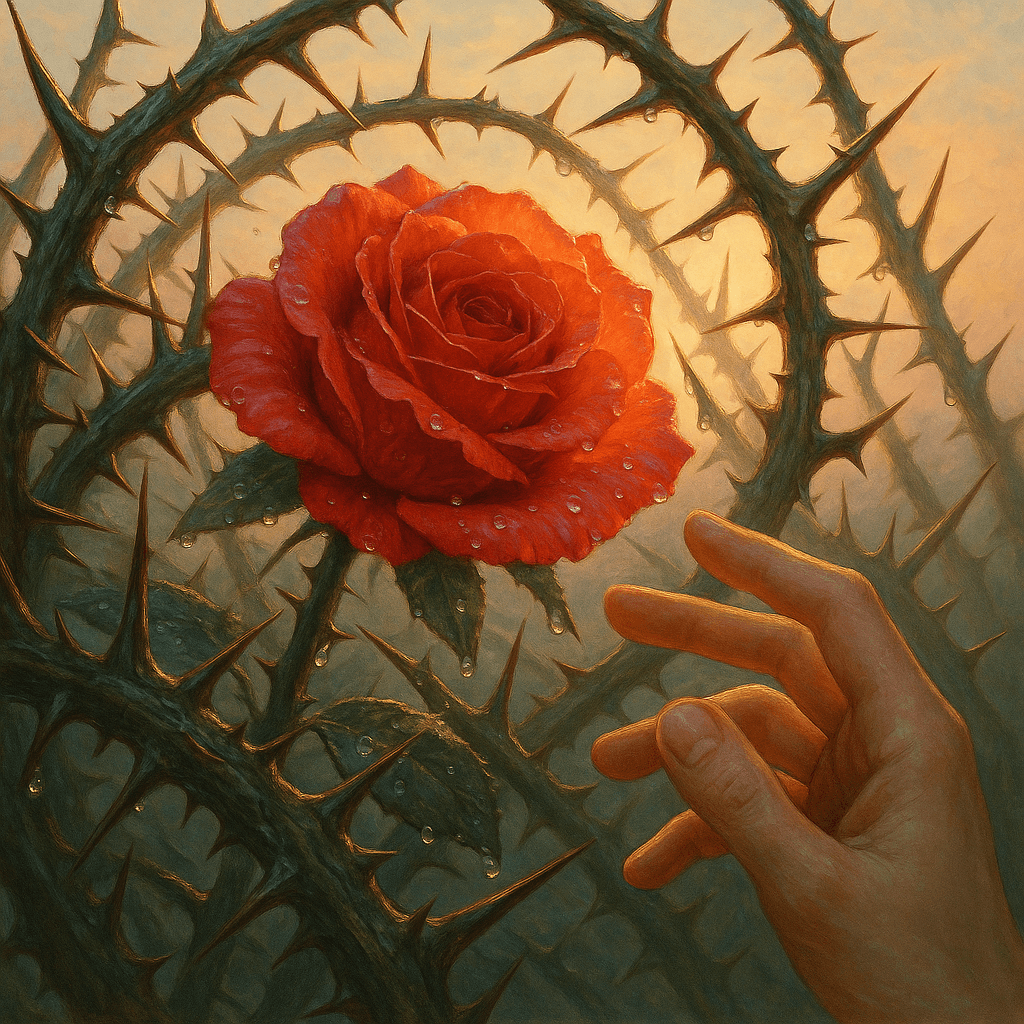The Protective Power Behind Nature’s Beauty
Created at: July 25, 2025

A thorn defends the rose, harming only those who would steal the blossom. — Chinese Proverb
Nature’s Duality: Beauty and Defense
At the heart of this Chinese proverb lies a striking duality: the rose represents beauty and allure, while the thorn embodies protection. Much like the rose, many of nature’s most enchanting creations are equipped with subtle defenses to guard their value. This balance serves as a reminder that beauty often does not stand unguarded; it is carefully shielded, deterring those with careless or harmful intentions.
Cultural Roots of the Proverb
Examining its origin, the proverb exemplifies traditional wisdom prevalent in Chinese literature, where metaphors from nature convey human truths. Similar imagery is found in classical Chinese poetry, echoing the idea that precious things are rarely left vulnerable. The thorn’s role is not aggressive but reactive, a point that aligns with the Confucian ideal of virtue: protection is measured, only activated in response to threat.
Moral Implications: Justice and Boundaries
Transitioning from nature to human behavior, the proverb’s message extends to ethics and interpersonal relations. The thorn’s selective harm illustrates the principle of justice—protecting the innocent while discouraging wrongdoing. It suggests boundaries are necessary, and that defense is justified only against those who would abuse or exploit. This concept appears in Aesop’s fables as well, where self-protection is framed as both wise and fair.
Lessons for Personal Integrity
Furthermore, the rose and its thorn provide a metaphor for personal boundaries. Just as the rose draws admirers but shields itself from harm, individuals must balance openness with self-preservation. For instance, maintaining clear boundaries in relationships ensures that kindness is not mistaken for vulnerability. The thorn, then, signifies the strength required to protect what is cherished or vulnerable within us.
Broader Social and Environmental Reflections
Looking outward, the proverb invites reflection on societal and environmental stewardship. Beautiful and valuable things—whether art, culture, or natural resources—require vigilant guardianship. Just as the thorn preserves the rose’s bloom for rightful appreciation, so must communities and institutions defend what is precious from exploitation. Thus, the proverb becomes a framework for considering how we protect and honor value in every sphere.